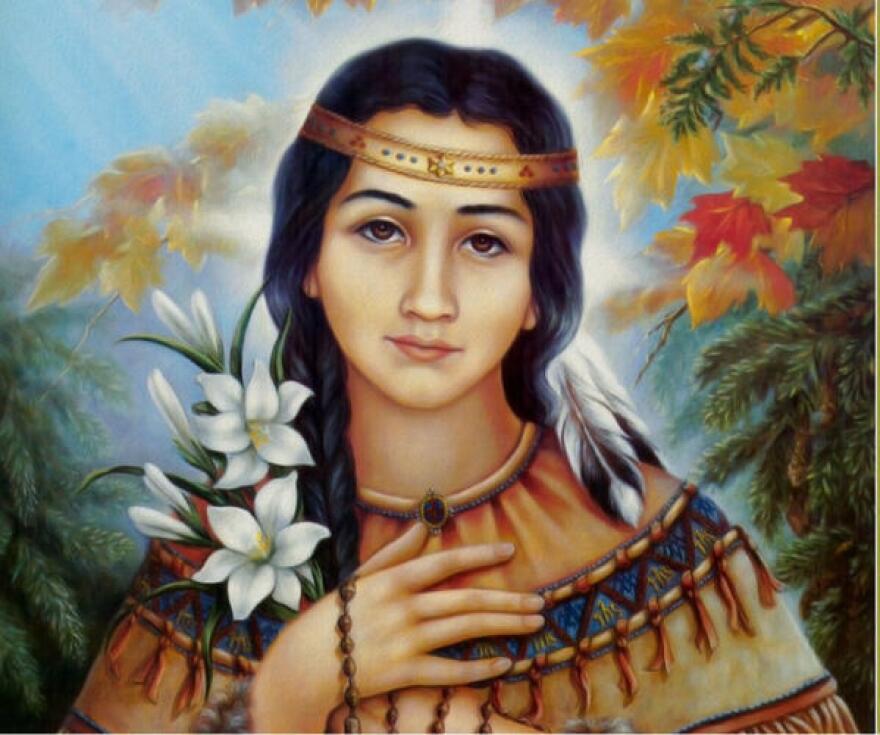“Blessed Kateri” was of Algonquin and Mohawk heritage, and after a grueling life, died in 1680 near present-day Montreal. She’s been associated with several miracles since, including helping a Washington state boy recover from a flesh-eating disease.
Among those cheering on Saint Kateri, is Avis Hudson-Burnette, a Sioux–Navajo woman living in the Cleveland area. She acknowledges that there are hard feelings between the native community, Christianity, and the government, over past wars and conflicts. But Hudson-Burnette feels this event will help everyone move on.
“I sure hope that our American Indian people…obviously, I’m sure they’ll take it as an honor," she says. "Our traditionalists too, I can’t speak for them obviously, but I hope they do the same. This is the time for us to have the ultimate forgiveness as to what the government did to us. That’s very important, because that’s the only way we can heal.”
The role of the church in converting – and some say, subjugating – Native Americans through the centuries remains a touchy issue to this day. Some see the canonization of Kateri as an effort to appeal to more indigenous people.



